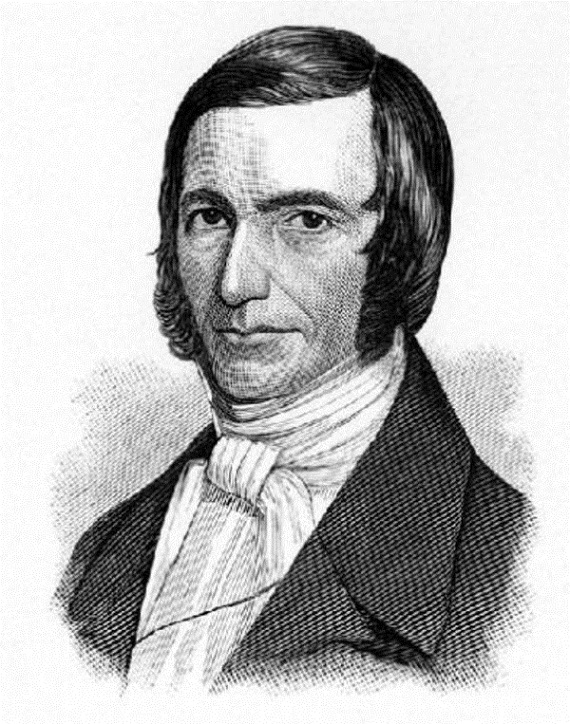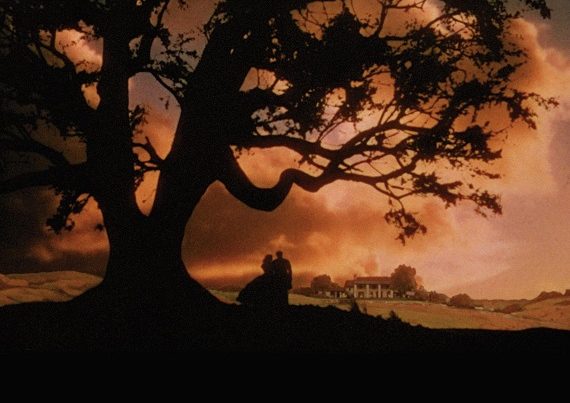A review of Preachers with Power: Four Stalwarts of the South (Banner of Truth, 1992) by Douglas F. Kelly
I first became aware of Douglas F. Kelly through some videos on YouTube in which he was interviewed about his recent book Creation and Change, a defense of the book of Genesis as authentic history. His erudition and his manner (that of a southern Christian gentleman) impressed me so much that I wanted to know more about him and his other writings, which include Carolina Scots, The Emergence of Liberty in the Modern World, and Preachers with Power: Four Stalwarts of the South. Kelly, a native of North Carolina, is a Presbyterian theologian and a professor at Reformed Theological Seminary in Charlotte, N.C.
I would like to read many of his books, but the one I ordered and read first was Preachers with Power. It is a study of four southern Presbyterian ministers who were deeply influential in the nineteenth century. Kelly’s first subject is Daniel Baker (1791-1857) of Georgia, who spent most of his ministry as an itinerant evangelist. Baker’s preaching was so powerful that he sparked major revivals, including awakenings in Beaufort District, South Carolina, in the 1830s, and more widespread awakenings in other parts of the state in the 1850s. The other “stalwarts” of the faith are South Carolinians: James Henley Thornwell, Benjamin Morgan Palmer, and John Lafayette Girardeau.
Kelly begins his book with a sympathetic introduction to “The Old South,” asserting that the Southern states are, to this day, “culturally and religiously different from the Northern and Western parts of the United States,” and that “the most valuable heritage that was passed down from the early South to the present was a Bible-based, evangelical Christianity, little touched by non-reformational and secularist streams of thought.” He briefly touches on the factors leading up to the War Between the States, noting that the abolitionist movement was “exploited by Unitarian, transcendentalist intellectuals in New England, supported by men of great industrial wealth and their radical political allies in the U.S. Senate. Such senatorial leaders as Thaddeus Stevens of Pennsylvania and Charles Sumner of Massachusetts led the fragile Union to the brink of war in hopes of turning what they perceived as a too conservative, constitutional republic into a more radically liberalized modern democracy.” Kelly considered it wrong for Southern conservative theologians to have developed a Biblical defense of slavery, but understands that they were men of their times, and adds, “it may be easier for us twentieth-century Christians to criticize our erring forefathers for their blind spots than to see and repent of our own.”
In the following four sections of the book, Kelly provides biographical sketches of these four men of God and expounds on the significance and impact of their lives, thought, and ministries. James Henley Thornwell, though an intellectual giant, was a passionate, eloquent preacher. His friend and biographer Benjamin M. Palmer characterized his pulpit oratory as a “rare union of vigorous logic with strong emotion … Dr. Thornwell wove his argument in fire.”
Benjamin Morgan Palmer, a native of Charleston, studied at Columbia Theological Seminary (in Columbia, S.C.) from 1839 to 1841, and was deeply influenced during that time by Thornwell, who was a seminary professor and pastor of First Presbyterian Church of Columbia. In the 1850s Palmer was called to the pastorate of the First Presbyterian Church of New Orleans, Louisiana, where his beautiful, moving preaching and pastoral compassion made him extremely popular and beloved. “Palmer’s life and preaching,” says Kelly, “was characterized by total commitment to the Word of God and by reliance on the sufferings, death and resurrection of Jesus Christ.”
Kelly’s fourth subject is John Lafayette Girardeau, who has been called “the Spurgeon of America.” Born on James Island, a sea island near Charleston, he entered Columbia Theological Seminary in 1845, where, like Benjamin M. Palmer, he was strongly influenced by Thornwell. From the beginning of his ministry in South Carolina, Girardeau felt a call to serve “the coloured people.” Thanks to the efforts of members of the Second Presbyterian Church in Charleston, principally Rev. John B. Adger, who was also dedicated to the religious instruction of the slaves, a separate church was established for them which eventually came to be known as Zion. Girardeau, who became the pastor of Zion, shared Adger’s view that “Southern slavery was just a grand civilizing and Christianizing school, providentially prepared,” and that “the two races were steadily and constantly marching onwards and upwards together” to eventual emancipation, when the enslaved race was ready to “graduate.” [i]
The mission church which became Zion flourished under Girardeau’s preaching and leadership. He recorded in a partly autobiographical manuscript that in the 1850s, “Crowds of coloured people were added to the church.”[ii] Deeply compassionate toward his congregation, he tailored his sermons to his audience, speaking in a simplified but emotionally powerful narrative style, enhanced by his knowledge of the Gullah dialect. A fellow clergyman described one of his sermons in this way:
Once … he was preaching to a large congregation of negroes. As in plaintive tones he pictured Jesus Christ going forth to death and bending beneath the burden of the cross, every eye was opened wide and riveted upon the speaker, while each breast seemed to rise and fall, as step after step was taken up the rugged steep of Calvary. When the place of execution was reached everybody fell back and many hands were raised in horror. When the nails were driven a deep sigh swept through the house like the sad moan of the sea as it rolls upon the shore, and when the Saviour’s head was dropped in death, a deep shudder convulsed the weeping throng as hundreds piteously cried, “O, my God! O, my God!”[iii]
In 1862, Girardeau went into the Confederate Army as chaplain to the 23rd South Carolina Infantry Regiment. His powerful, affecting preaching won many souls among the ranks, as attested in the letters of soldiers and officers who heard and served with him. When he returned to Charleston after the war, his old congregation asked him to return as pastor, which he did in January 1867. Before that, in late 1865, Girardeau preached a series of sermons to the “defeated, depressed and disillusioned people of Charleston.” Douglas Kelly quotes a poignant excerpt from one of these sermons, in which Girardeau deals with “God’s mysterious denial of the legitimate supplications (at least from the human viewpoint) of his people.”
He may suffer them, for wise purposes, to undergo apparent defeat, and to be exposed to a tempest of opprobrium, oppression and scorn. In these cases it is our duty to sustain ourselves by the consideration that God does His will, and that the Judge of all the earth will do right. And to him who thus in disappointment and suffering, baffled in his hopes, and tempted to skepticism, yet honors God by a meek and uncomplaining submission due from a sinful short-sighted creature, to infinite wisdom and absolute sovereignty, it will in time be made conspicuously to appear—as clearly as the flash of a sunbeam through the fissures of a dissolving cloud—that benefits were withheld for the bestowal of greater, that temporary suffering is but the prelude to everlasting blessing, short-lived disappointment to the dawn of unfading honor, and that truth and right go down beneath a horizon of darkness and an ocean of storms, only to reappear in the morning glory of an eternal triumph.
Jesus as an infirm, dying human being, staggering under the curse of a world, prayed that He might be delivered from suffering the second death. His prayer was unanswered and He died; but His grave was the scene of death’s dethronement and the birth-place of unnumbered millions of deathless souls redeemed from Satan, sin and hell.
Kelly points out that Girardeau also “preached many messages of an apologetic nature in order to strengthen the intellectual and moral resolve of God’s people under the increasing onslaught of humanist rationalism in the late nineteenth century.” In 1876, Girardeau accepted a professorship at Columbia Theological Seminary. He also continued to preach, and wrote prolifically in defense of Biblical orthodoxy until his retirement in 1894.
What Kelly considers most important about these four great men was that they “preached Christ and him crucified.” Anyone who wants to know more about them would do well to pick up a copy of Preachers with Power and prepare for an instructive, well-written, and moving read.
[i] Adger, John B. My Life and Times, 1810-1899 (Richmond: Presbyterian Committee of Publication, 1899), 165-67.
[ii] “The History of Zion Church” (an unpublished manuscript at the S.C. Historical Society)
[iii] Blackburn, George A. The Life Work of John L. Girardeau (Columbia, S.C.: The State Co., 1916), 52-53.







